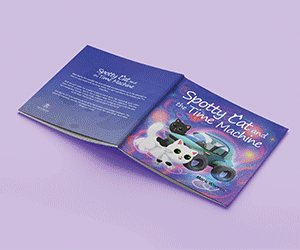Primary Times - the definitive what’s on and where to go family guide of activities and events for children of primary school age. Things to do with your kids during the school holidays including arts and craft activities, music and theatre for children, parties, competitions, days out, and family attractions along with term time drama schools, dance classes, after school clubs and sports activities. Things to do at a place near you!
Full STEM ahead
Ellen White reports on why it's vital to get children interested in science, technology, engineering and maths (STEM) at the earliest possible age.
It's more than likely that, as a parent, you've helped your child learn to spell a particularly fiendish word or lent a hand with some challenging maths homework. But what about the other STEM subjects?
It’s widely accepted that children all too often fail to engage with these subjects at university. Katherine Mathieson, Chief Executive at the British Science Association, believes that the key to improving this lies in sparking children's interest long before they choose their specialist subjects for GCSE or A-level.
Katherine says: “There’s a really interesting piece of research led by Louise Archer at University College, London, called ASPIRES. It tracked young people over about ten years to see how their interest in being a scientist changes during their schooling. Over 80% of 10-year-olds already know they don't want to be a scientist, even though many said science was their favourite subject in school, they found it fun and understood why it was useful for society. So it's not that they think it's boring or trivial, which are the reasons often given for why children are uninterested in science. It's something about being a scientist that makes a lot of children feel unwelcome or like they're not that sort of person.
“Children are ruling themselves out of certain career paths because of their misconceptions about what scientists and engineers are really like. I think it's important that students of all ages, but particularly primary age, get the chance to meet a wide variety of scientists and engineers so they can see that they're normal people! It's important for children to see ‘people who look like me’, for example the same ethnic group or gender.”
“The stereotype of what a scientist looks like is very narrow,” Katherine adds. “If you get children to draw a scientist you'll usually get men in white lab coats. We need to aim for more diversity.”
There are plenty of advantages that come from learning about STEM subjects at a young age, as Katherine explains: “The benefit I'm most interested in is that exposure to really good quality STEM activities while at primary school can help young people consider that they might want to be a scientist or an engineer in the future, in a professional or amateur sense. There are more tangible benefits too, one being that children just really enjoy it. It's hands-on, it's fun and a bit different to the other subjects. It's also relatable. STEM can help explain why the world is the way it is.”
“STEM can offer transferable skills,” Katherine continues. “Things like asking good questions or developing critical skills around sources, numeracy or working in a team, collecting data accurately or drawing charts - there's a lot of different skills involved, including manipulating objects which is great for young children's motor skills.”
Katherine highlights one of the main obstacles facing teachers trying to push the STEM agenda: “There’s a real challenge in designing a curriculum that truly engages with all young people and connects more with those who have a definite interest in being scientists. I think we need a curriculum that keeps up with the modern world. It's hard to design a learning experience that suits the needs of today's 5-year-olds, for example, because it’s difficult to know how automated the world will become, or how climate change will affect them.”
And how can parents help get their children interested in STEM?
“Try and link STEM learning to existing interests in every day life,” she says. “If you like going out to the countryside, try going out and collecting data on what you see around you. Look for the science links - if you like baking or gardening, there's a lot of science there.
“Don't worry about your own knowledge level. Kids will always ask questions we don't know the answers to and that's OK! It's something you can look at together and build your knowledge at the same time.”
Learn more
eFor information and resources to explore STEM at home or in school, visit these websites:
Stem Learning W: www.stem.org.uk
British Science Association W: www.britishscienceassociation.org
How to STEM W: www.howtostem.co.uk






